Matt and Jadrian explore several aspects of studying abroad. These include the economic benefits students gain, how study abroad programs differ from a typical vacation, and why these experiences often have a lasting impact on students. Their conversation includes insights from their own experiences as students and faculty leading trips overseas. They also examine the financial and educational considerations that shape access to these programs.
In this episode, we discuss:
Why study abroad isn’t just an extended vacation
How cultural immersion challenges students and promotes maturity
The role of faculty in balancing structure with independence
Study abroad as a tool for career skills and job interviews
And a whole lot more!
Catch up on some old episodes:
You can also listen to us on Google Podcasts, TuneIn Radio, and Apple Podcasts. If one of these is your go-to podcast service, be sure to rate us and subscribe!
Watch this episode on YouTube:
Some show notes:
Jadrian is back from the CTREE economics teaching conference and already deep into planning sessions for JET SET 2025, which will take place in St. Louis, Missouri. Meanwhile, Matt just wrapped up an experimental auction workshop at Michigan State. It's been a packed week (as usual), making this the perfect time to pause and catch up. With the sun out, Jadrian reached for an Electro Lime Circa de Cerveza from Best Day Brewing—a non-alcoholic Mexican-style lager with sea salt and lime. Matt stuck to his IPA roots with a Founders Mortal Bloom Hazy IPA.
With Jadrian heading to England next week, we took the opportunity to talk about the value of studying abroad for both students and the faculty who lead them. We kicked off the episode with some personal reflections on our experience: Jadrian reflecting on his time as a student in Mexico, and Matt sharing his experience running a semester-long program in the UK.
Study abroad isn’t like a typical family vacation. It pushes students to adapt quickly, often outside their comfort zones. Navigating cultural differences, language barriers, and unfamiliar logistics can be challenging, but those same stressors create space for meaningful growth. When done well, the experience becomes a powerful learning opportunity.
One important decision students face when considering studying abroad is how long they want to be away. Jadrian has led week-long programs that pack in a lot over a short time, but those don’t leave much room for students to explore independently. In contrast, semester-long programs offer more flexibility and unstructured time to experience a place more fully.
The tradeoff, of course, is cost. Shorter trips are usually far more affordable than multi-month programs. Still, no matter the length, some of the most valuable moments happen when students are left to navigate on their own, whether it’s figuring out local transit or working through challenges with a travel partner.
Those challenges can feel intimidating in the moment, but they often pay off in the years that follow. Both Jadrian and Matt see study abroad as a transformative experience, and one that also helps students stand out professionally. It gives them real, lived examples to draw on during job interviews, especially for questions about conflict resolution or navigating unfamiliar situations. Just as importantly, it signals to employers that the student is willing to take risks and step outside their comfort zone to engage with new cultures.
Finally, it's worth recognizing the economic impact on host countries. Study abroad students aren’t just paying tuition, they’re also participating in the local economy in other meaningful ways. They rent apartments, buy train tickets, eat out, and shop like short-term residents. While we’ve questioned the economic impact of quick tourism events, like weekend concerts, these longer study abroad programs bring sustained spending. In many ways, it’s like adding a small group of temporary locals, which can be a real benefit for the communities that host them.
This week’s pop culture references:
Jadrian stayed on theme this week with a clip from Eurotrip, where a group of American travelers are amazed at how far their money goes abroad. It's a fun example of purchasing power parity—the idea that the same amount of money can buy more (or less) depending on the country you’re in.
Matt highlighted the new Paramount+ series Landman, which follows a struggling landman working for M-Tex Oil in the oil boomtowns of West Texas. The show offers a look at the people behind oil exploration and touches on several economic themes.



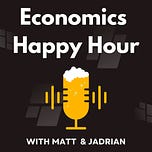




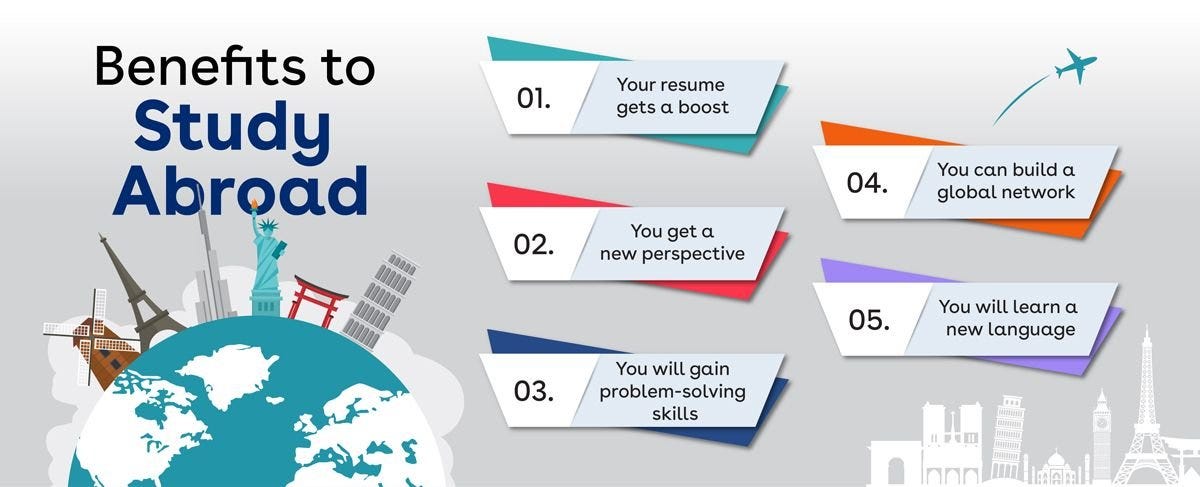



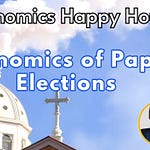
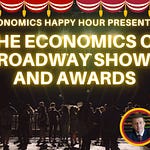

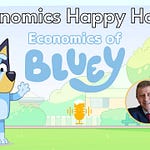


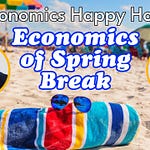
Share this post